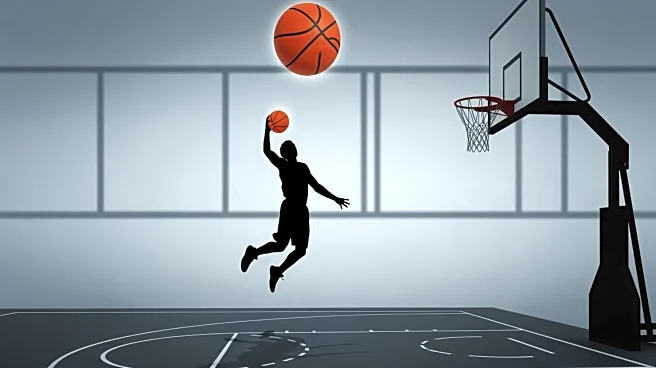What's Happening?
Bronny James, son of NBA star LeBron James, made headlines with a spectacular dunk during a game against the Miami Heat. The play, involving an alley-oop pass from Austin Reaves, went viral, showcasing
Bronny's athleticism and composure. Fans and NBA players praised the 20-year-old rookie for his performance, drawing comparisons to his father. Despite being a late second-round draft pick, Bronny has been fighting for minutes and is making the most of his opportunities, impressing head coach JJ Redick.
Why It's Important?
Bronny James' performance highlights the potential for young athletes to make significant impacts early in their careers. His ability to draw comparisons to his father, LeBron James, underscores the influence of family legacy in sports. Bronny's success could inspire other young athletes and influence team dynamics, as franchises may look to invest in emerging talent with strong familial ties to established stars. This event also reflects the power of social media in amplifying sports moments, potentially affecting player marketability and fan engagement.
What's Next?
As Bronny continues to gain playing time, his performance could lead to increased visibility and opportunities within the NBA. His ability to impress during games may result in more strategic plays designed to showcase his skills. Additionally, Bronny's growing popularity could lead to endorsement deals and media appearances, further solidifying his presence in the sports industry. Teams may also consider leveraging his familial connection to LeBron James for marketing and promotional purposes.
Beyond the Headlines
Bronny's rise in the NBA could signal a shift in how young athletes are perceived and utilized by teams. His success may encourage franchises to focus on developing young talent with strong potential, rather than relying solely on established players. This could lead to changes in recruitment strategies and player development programs, emphasizing the importance of nurturing emerging stars. Bronny's journey also highlights the role of social media in shaping athlete narratives and influencing public perception.











